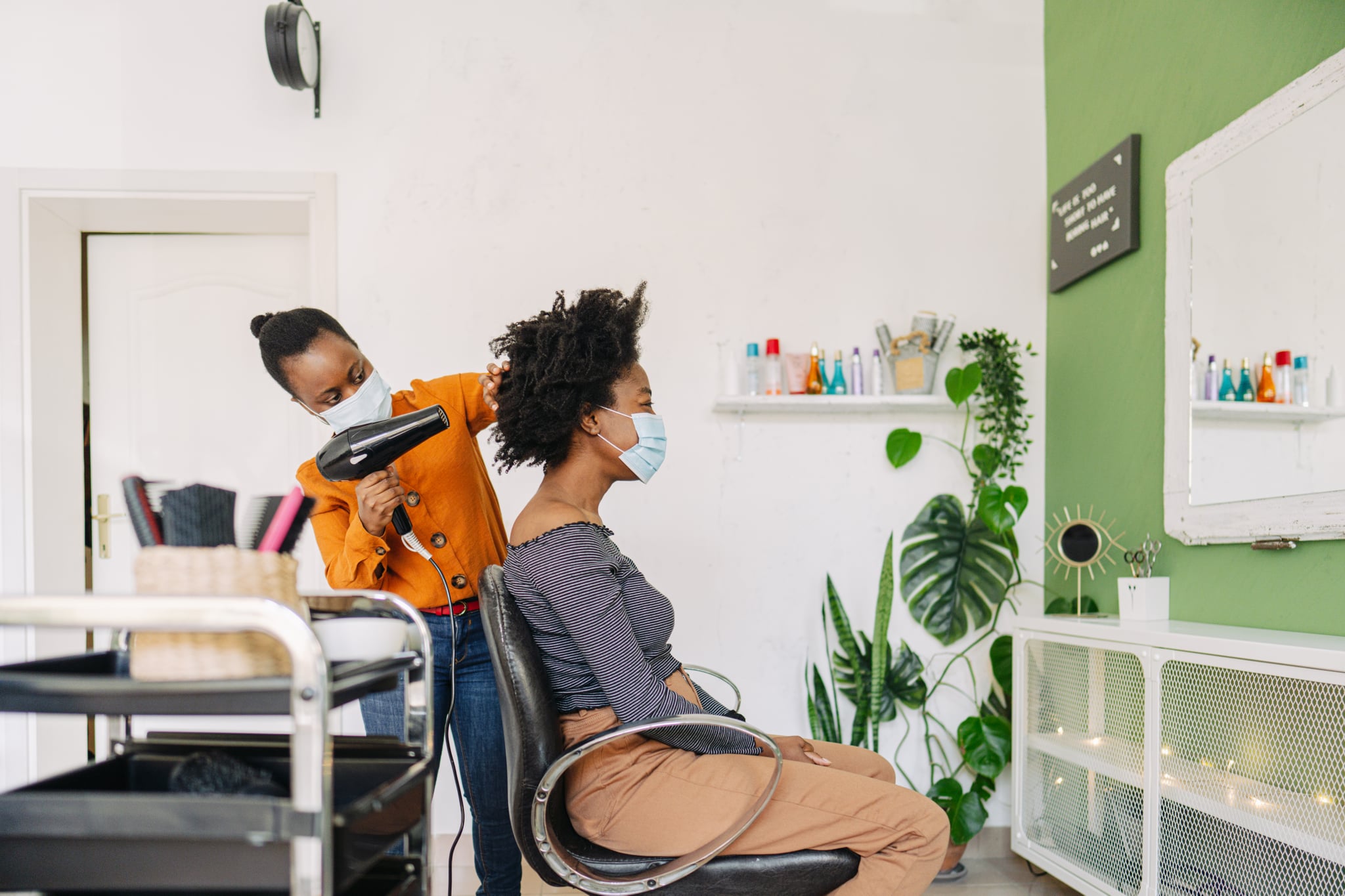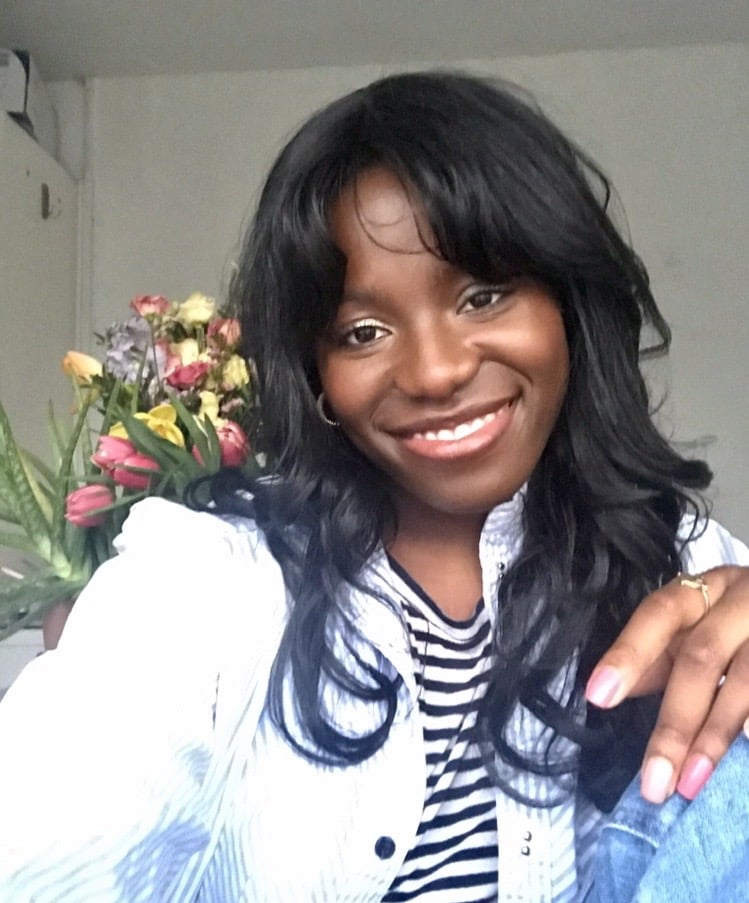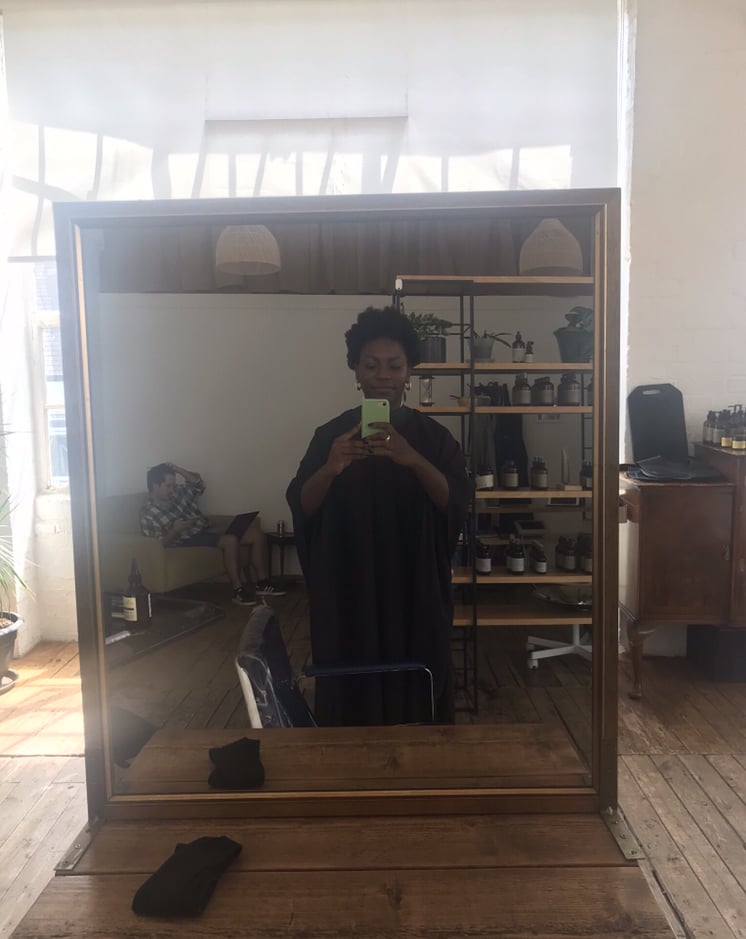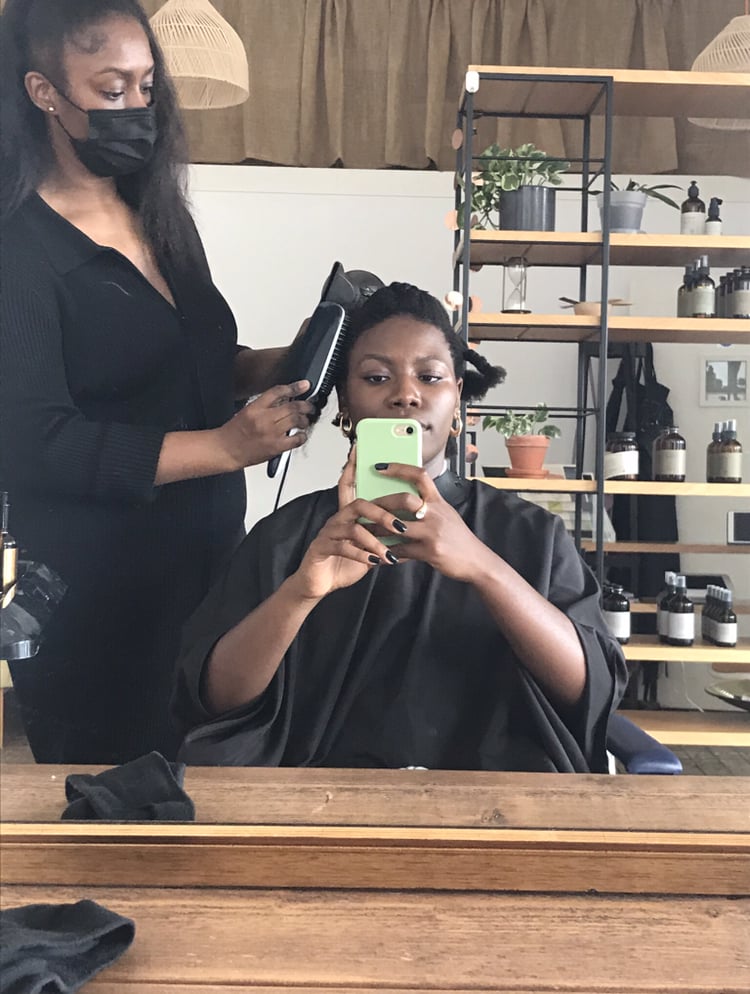
Many thanks to a now market-large call to motion against the marginalization of Afro hair, words and phrases like “coily”, “kinky”, and “Afro” are now autocorrect mainstays in my operate as a beauty author. The at any time-evolving conversations around how to treatment for Afro hair at house have been types I have eagerly participated in, composing down and offering assistance from the prosperity of understanding I have gained somewhere in between teenage fringe experimentation and watching numerous on-line hair tutorials. Styling apart, my laissez-faire mind-set to the health and fitness of my hair — partly owing to the truth that escalating up, my hair was frequently explained as “stubborn however delicate” — manufactured for a relaxed step-and-repeat approach to my hair-treatment regime, a single that since I was 16 had 1 significant constant: I in no way stepped foot into a salon. But just after a 12 months of lockdown that was entire of microfiber hair turbans and generate-ups about the revolutionary methods now getting taken by Afro hairstylists and experts, I realized that my individual return again to a salon was long overdue.
It would be quick to attribute my salon hair-treatment hiatus to an terrible chemical burn incident, or even to rising up in an Afro hair desert (a considerably less affronting description used to excuse the absence of hairstylists skilled in all hair styles). Even so, more than the earlier yr, I have uncovered that the root trigger of my salon avoidance is a minimal additional sophisticated.
At-dwelling Afro hair care had turn into substantially extra than just a variety of experimentation for me and instead a way to strictly implement control more than my hair and, in some techniques, my life. Rather of my at-home hair care technique furnishing me with “freedom”, it aided me cement 3 stringent versions of myself: the a single who wears braids (notably in the summertime in a jet-black hue that authorized me to have fun but secretly even now be in manage) the 1 who wears wigs with fringes (which ended up an excuse for me not to have to confront my interior annoyance in excess of the reality that escalating up in a predominantly white location remaining me unversed in the language of lace fronts) and finally, the a person with my hair blow-dried straight and swept into a bun (which I did for concern of damage and with consistent curl guilt above not donning it in its most purely natural point out).

This regulate, aided by YouTube and the on the internet purely natural hair neighborhood, permitted for the emergence of negative hair patterns sanctioned by my belief that “it’s only hair, it’ll grow back again, I’m not a person of these Black ladies who cry about briefly broken locks”. Even when I finally weaned myself off of chemically taming my hair and manipulating it to the level of breakage, it did almost nothing for my mind-set toward controlling my hair.
A yr of many deep-conditioning remedies through Zoom phone calls afterwards, and I ultimately reached a level of aggravation around the repetitive nature of my restrictive hair routine. It took a number of uncomfortable self-discovery periods, which integrated debating shaving it all off and getting conversations with Afro-owning females around me, prior to I commenced to realize that management — handle in excess of my hair, demanding regulate about each individual strand — had been the driving drive at the rear of my almost 7-12 months salon standoff.
I set about my reunification with salons working with the “community phone” approach, previously employed by my mother in get to sniff out any new braiders who could do my hair before school started off, and a buddy promptly pointed me in the direction of hairstylist Zateesha Barbour. The drastic bounce from my at-household only stance to staying sat, Afro out, in front of Barbour — who has labored with the likes of Jorja Smith and on campaigns for Estée Lauder — felt like a far cry from the buzzy salons from my childhood. The stylish loft salon, which Barbour later stated housed a collective of freelance stylists, to begin with did nothing at all to relaxed my racing intellect more than the intimacy of the event, amplified by a yearlong lessen in human touch many thanks to COVID-19.

Nevertheless, no matter if it was Barbour’s ease and assurance in her Afro hair skills, or my expertise that I could usually improve it when I get home (which I admitted to her), and shortly the appointment started to experience much less like a chore. In accordance to Barbour, the positive aspects of the appointment for my hair had been so much more than just a new ‘do.
“The most important profit of typical appointments for men and women with Afro-textured hair is surely scalp care, due to the fact it is truly critical and often it gets neglected a further benefit is hair treatment in normal,” she mentioned. “I say hair treatment due to the fact, if the design and style seems sweet, folks end essentially caring if you’re manipulating it in strategies that lead to additional harm. Occasionally a expert is essential for a gentle reminder not to do that.” Barbour encouraged to e book an appointment “just about every 8-10 weeks” in purchase to consistently trim the hair and make guaranteed items and treatment plans are basically doing the job for you, a message that was audio to my ears — and a reduction to my cluttered lavatory cabinets.
Many thanks to Barbour’s thorough consultation, we were being capable to discuss the point out of my hair, her specialist viewpoint on treatment masks and co-washing (15-20 mins for the latter, keep away from for the former), alongside much more advanced matters like the myths so several people have about afro hair, myself incorporated. Inspite of its several years of villainization, Barbour spelled out that heat (in moderation) was not my fro’s foe and that co-washing, a beloved pillar of the on the net natural neighborhood, could really be the source of merchandise construct-up associated scalp issues. The most important shock, on the other hand, arrived right after her assured assurance that no, even with how fantastic an all-day hair mask feels, it “can only penetrate so significantly into every hair layer,” so donning it for 20 mins is far more than adequate. We touched on hair coloration, which Barbour explained as her “preferred factor to do with shoppers, since the principal detail is to make guaranteed that the hair is nutritious prior,” and she also provided me with new insight about after treatment for transitioning hair, organic fros, and even chemically straightened ends.

Prior to the appointment, I had talked about at size with good friends about how I preferred it to be a refreshing commence away from my restrictive hair stance — a new hair shade, or possibly just highlights, and a coily slice. On the other hand, sitting in the chair, blurting out my request for a straight silk push coupled with my first horror about the plan of an off-middle parting, I recognized that even trying to relinquish many years of management in a person appointment was similarly restrictive. The freedom to examine my problems and fears with another person other than my inside voice was both a welcome relief and a reminder of the rewards (past split-conclusion elimination), that a vacation to the salon supplies.
As with most matters in the hopeful (still, at occasions, hesitant) look at the beauty business publish 2020, our conversation shortly turned to recognition, accessibility, and Barbour’s belief “that the authorities need to make it compulsory for all hair types to be analyzed, so absolutely everyone can be equipped to wander into any salon and have a services finished,” and we shared enthusiasm for Black females and men and women with Afro hair to experience secure, happy, and similarly listened to. The time put in in the salon did not magically undo yrs of my handle difficulties all at after, and I failed to leave with a coily afro with highlights strewn in the course of — but this initially release, underneath Barbour’s able hands, is a single that could never have transpired at dwelling by itself by the toilet sink.

